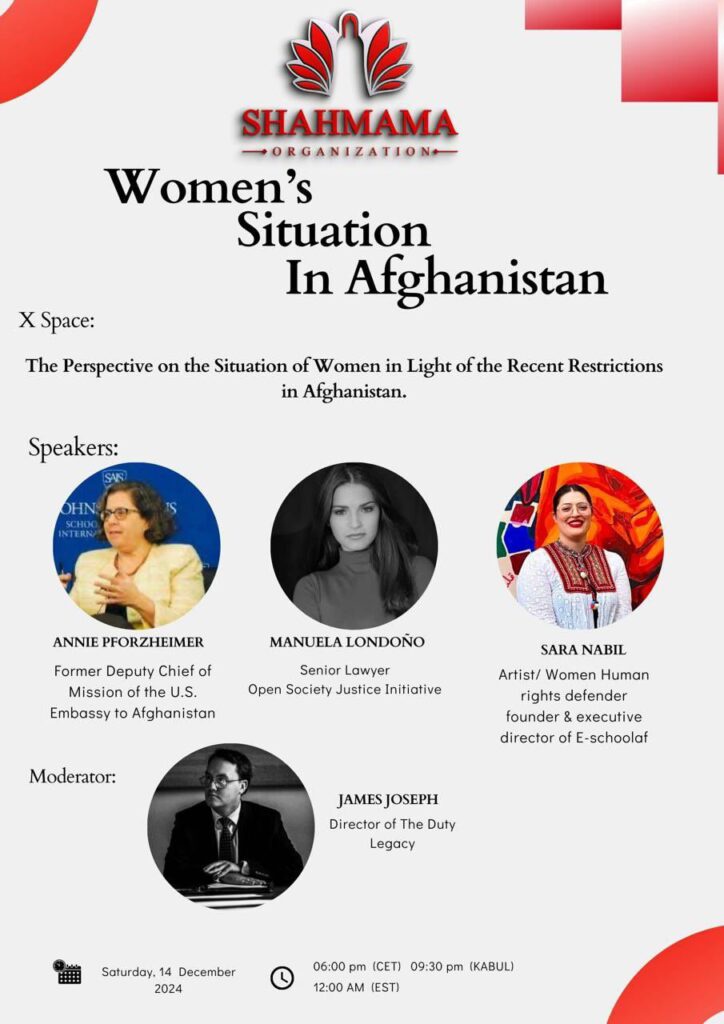Shahmama hosted an impactful event titled “The Perspective on the Situation of Women in Light of the Recent Restrictions in Afghanistan.” This insightful discussion brought together three distinguished panelists to examine the challenges Afghan women face under the ongoing restrictive policies and explore actionable solutions.
The event provided a platform for a nuanced dialogue on the current crisis and highlighted the collective responsibility of the global community to address it.
Panel Highlights
Annie Pforzheimer
As the Former Deputy Chief of Mission at the U.S. Embassy to Afghanistan, Annie Pforzheimer addressed critical questions regarding the role of international actors and practical advocacy measures:
1. The Role of International Actors: Annie emphasized the importance of cohesive and sustained international pressure to challenge the oppressive restrictions imposed on Afghan women. She stressed the role of diplomatic initiatives, sanctions, and humanitarian aid in supporting women’s rights.
2. Practical Advocacy Steps: She called for increased collaboration among civil society, governments, and international organizations to amplify Afghan women’s voices and mobilize global support for their rights.
Manuela Londoño
Senior Lawyer
Open Society Justice Initiative:
Manuela Londono offered a legal perspective on the situation and identified avenues to uphold accountability.
1. Legal Accountability: She outlined mechanisms under international law to address the ongoing violations, including the use of UN bodies, international courts, and sanctions regimes.
2. Leveraging Legal Frameworks: Manuela emphasized the need to strengthen legal and institutional support for Afghan women through international frameworks like CEDAW (Convention on the Elimination of All Forms of Discrimination Against Women) and justice mechanisms.
Sara Nabil:
As an artist and human rights activist, Sara Nabil shared her unique perspective on advocacy through art and education:
1. Advocacy Through Art: Sara described how she uses her art to depict the struggles of Afghan women, raising awareness on a global scale and keeping their stories alive.
2. The Role of Education: She highlighted the importance of education, especially through online platforms, in empowering Afghan women despite the restrictions. Sara called for enhanced international efforts to provide educational opportunities for Afghan women and girls.

Key Takeaways
The discussion reinforced the urgency of collective international action to support Afghan women. The panelists underscored the importance of leveraging diplomatic, legal, and educational tools to combat systemic oppression and ensure that the rights of Afghan women remain at the forefront of the global agenda.
Shahmama extends heartfelt gratitude to the panelists and attendees for their invaluable contributions to this critical conversation. Together, we continue to advocate for a brighter and more equitable future for Afghan women.
Stay tuned for updates on upcoming Shahmama events and initiatives on our website and social media channels.
To watch the recoded session please refer to the link below.

